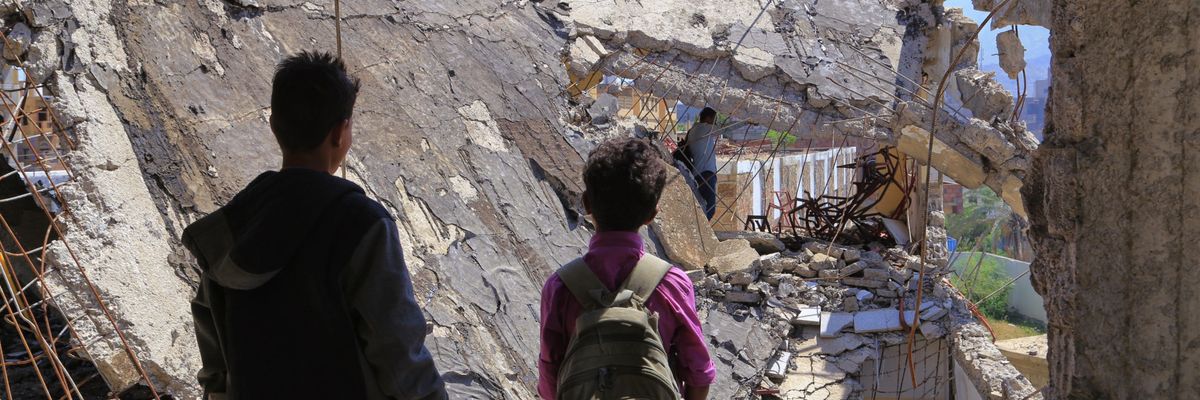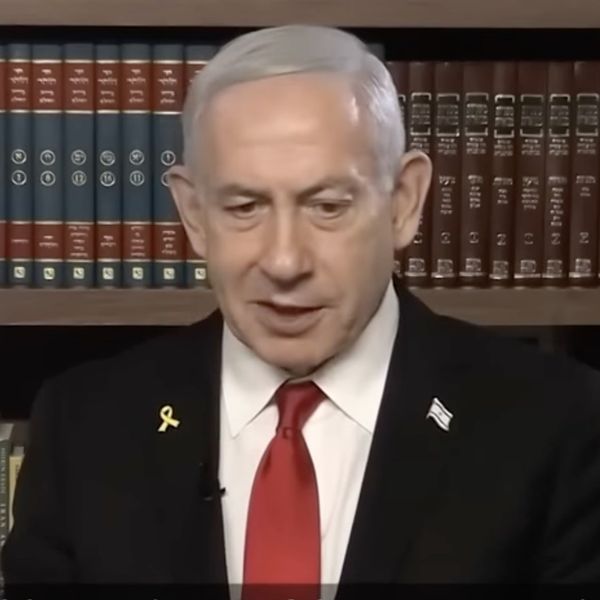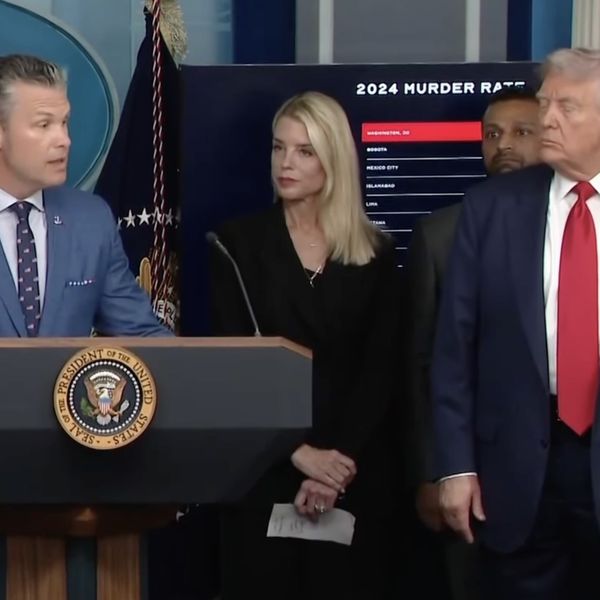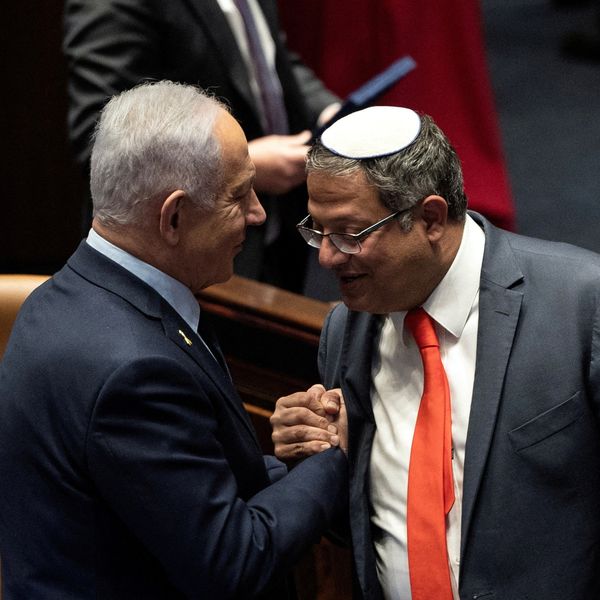Following years of failed strategies in Yemen, Saudi Arabia is attempting to gradually wind down its operations in the country through diplomatic channels. The United Arab Emirates (UAE) also decided to largely withdraw its military forces from the conflict despite remaining ambitious in Yemen. There has also been much buzz about Sudan’s role in the war ending too.
Confirmation of Sudan significantly reducing its involvement in the Yemen war came on December 8 when Prime Minister Abdalla Hamdock spoke at a press conference in Khartoum shortly after returning from Washington. He said that the number of Sudanese forces still deployed in Yemen decreased from 15,000 to 5,000. Hamdock also stated that no military solution exists for the Yemeni crisis and that the famine-struck country desperately needs a political solution.
This more diplomatic approach to Yemen is in no small part a product of Sudan’s internal politics in the post-Omar Hassan al-Bashir period. Given how unpopular the Yemen war became among many different groups in Sudan, the new prime minister, whose government was formed from a power-sharing agreement that the military and civilian opposition reached earlier this year, has been under pressure at home to bring Sudan out of the conflict across the Red Sea.
Since Saudi Arabia and the UAE began waging Operation Decisive Storm — renamed Operation Restoring Hope 13 months later — Sudan has belonged to this coalition. Determined to keep the number of their own citizens killed in conflict as low as possible, Saudi Arabia and the UAE used their deep pockets to bring in many battle-hardened Sudanese (and other African) fighters to serve as the Arab coalition’s cannon fodder in some of Yemen’s most brutal battles. Last year, reports stated that 8,000-14,000 Sudanese mercenaries and child soldiers were fighting within the Saudi-led coalition’s ranks against Iranian-backed Houthi insurgents. Among those mercenaries were fighters from the notorious Janjaweed, which became known for its crimes against humanity in Darfur in the 2000s.
Former President Bashir’s regime used to justify Sudan’s participation in the Yemen war on the grounds that Sudan, a Muslim-majority country, had special obligations to help Arab/Islamic states protect Mecca and Medina from Saudi Arabia’s Yemeni enemies. The leadership in Khartoum also stressed the threat posed by Tehran via the Houthis, as well as the importance of supporting Sudan’s close Arab allies — chiefly Saudi Arabia and the Emirates.
But, in reality, Sudan faced no genuine security threat from Yemen. Beneath the religious and political rhetoric lay Sudan’s internal economic crises. These financial problems resulted in Khartoum sending its forces to fight in Yemen in exchange for money from some Gulf Cooperation Council (GCC) states. Consequently, hundreds of Sudanese citizens have died fighting in Yemen since 2015. Additionally, Sudan also helped the Saudis in Yemen by opening its borders to mercenaries from multiple African states who came to Yemen via Sudan to enter the coalition’s ranks.
Geopolitically, there was a logic to Bashir’s decision to stay in Yemen in alliance with Saudi Arabia and the UAE after the GCC crisis broke out in May/June 2017. Khartoum, unlike a number of other African capitals, refused to sever relations with Doha after the Gulf dispute erupted and, in fact, grew closer to Qatar during the blockade. Although that strong partnership with Doha could have possibly enraged Riyadh and Abu Dhabi, Sudan’s role in Yemen helped ensure that the Saudis and Emiratis would continue to see Khartoum as an important partner in the region notwithstanding Khartoum’s “neutrality” in the GCC feud. Additionally, the Bashir regime’s decision to sever relations with Iran in early 2016 also helped strengthen Sudan’s standing with both Riyadh and Abu Dhabi.
Nonetheless, Bashir paid a price for involving Sudan in the Yemen war. Ultimately, Sudanese deaths and injuries in Yemen contributed to the unpopularity of both the conflict as well as Bashir himself. Throughout 2018 and 2019, as protests against Sudan’s strongman were continuing across different parts of the country, opposition to Sudan’s participation in the Yemen war became a theme among those calling for the end of Bashir’s three-decade rule.
For many Sudanese, the uprising against Bashir was about creating a new Sudan that respects the rule-of-law and a government which is more transparent, democratic, accountable, and committed to protecting human rights. Corruption as well as U.S.-imposed sanctions have held Sudan back for decades, preventing the country from achieving its potential from a development standpoint. Sudan with its natural resource riches should, at least on paper, be feeding not only itself by many other Arab countries as well. As many who protested Bashir’s presidency believe, Sudan should not need to deploy thousands of its fighters, including child soldiers, to fight in the Saudi-led war in Yemen in order to improve Sudan’s economic conditions. With many Sudanese citizens not perceiving the Houthis as any threat to their country, while also failing to see what vital national interests Sudan has been pursuing in Yemen, political changes in Sudan this year have had major implications for Khartoum’s domestic as well as foreign policies.
Questions about Sudan’s ties with the West are in the picture too. Given the extent to which the Arab coalition has failed to achieve its goals while the conflict has deteriorated into the world’s worst humanitarian crisis, opinions about the war have changed significantly in Washington and other western capitals. At a time in which U.S.-Sudan ties are thawing following a period of negative bilateral relations dating back to the 1990s, Khartoum is concerned about its image in Washington. As American lawmakers have demonstrated their growing opposition to U.S. support for the anti-Houthi coalition, Sudan may stand to benefit from being less involved in the nightmarish conflict, especially when officials in Khartoum consider how the political environment in DC could change drastically after the Trump presidency ends (whenever that occurs).
As Sudan continues its sensitive transition to civilian rule in the post-Bashir period, Hamdok is under pressure to deliver positive results for the Sudanese public. His mandate is to push Khartoum in a new direction following decades of harsh repression and dismal economic conditions that created widespread despair across Sudan. Yet Sudan’s leadership faces many challenges. With an economy in poor shape and still under U.S.-imposed sanctions, it is far from clear that Sudan’s transition will move smoothly or that Sudanese civil society’s hard-fought gains will not be reversed. Within this context, Hamdok, who realizes that Bashir’s government miscalculated Yemen’s crisis, views decreasing Khartoum’s involvement in the Yemen war serving Sudan’s national interests during this fragile transition.
The implications could be positive not only for the Sudanese, but also the people of Yemen too. Hamdok’s recent announcement can provide Yemenis with a source of optimism about foreign powers concluding that their contribution to lasting peace and stability in Yemen can only come through support for diplomatic initiatives, not continued warfare in the poorest Arab country.













